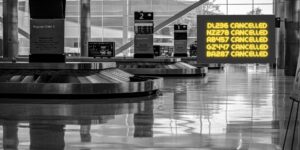
If you cannot find the answer to your question, please get in touch. We are always happy to help.

 You submit your brilliant resume and are invited for an airline interview. You already know you are a great pilot and well suited to the culture of the airline. You are also an all round nice person who gets along with colleagues, follows the SOP’s, puts safety first, has a good OTP rating and darn it, an experienced professional!
You submit your brilliant resume and are invited for an airline interview. You already know you are a great pilot and well suited to the culture of the airline. You are also an all round nice person who gets along with colleagues, follows the SOP’s, puts safety first, has a good OTP rating and darn it, an experienced professional!
But somehow you have received the dreaded ‘generic rejection letter’ following your interview. You rack your brain, what have you said or done wrong? Why exactly they did not select you?
First of all, you need to accept that you will not get detailed or personalised feedback from the airline (or any employer for that matter) about your rejection. In simple terms this can open the employer to litigation.
Therefore you need to work out what your ‘weaknesses’ are without any employer’s feedback. Actually I hate that word ‘weaknesses’. Let’s re-phrase that to: ‘You have to decide what areas you need to manage more effectively’ …much nicer.
What can you do to make sure that you don’t waste a new airline opportunity? Asking colleagues, friends and family can be a minefield of conflicting advice and cause confusion. Getting some clarity therefore is essential.
The cynic in you might think we are saying this to get your business, but our advice is: talk to a specialist.
It might be something really simple, a couple of actual examples:
All of these issues were manageable with the right advice. All pilots above were coached by Pinstripe Solutions and are all now working for Air NZ, Virgin, Cathay and Qantaslink.
Do you fully understand how what you are saying at interviews is being perceived?
Some people are not actually sure what a coach does and how they can improve your performance at interviews. Please allow me to explain in detail.
An interview coach will:
Keeping you informed on opportunities, new airline intel, tips and tools for your next airline interview
In almost every coaching session we see a few “aha!” moments. The person being coached will all of a sudden understand what it is they have been saying or doing that has been costing them the job.
Most questions and situations during interviews are manageable, but you don’t undergo interviews every day, so can’t assume that ‘you’ll be right’ on the day. Pilot jobs are highly contested, you need to recognise that it is essential to get specific guidance and support in order to achieve your goals.
If you want to schedule a FREE 10-minute chat to talk about your career and approach to interviews please don’t hesitate to email us.
Share on: